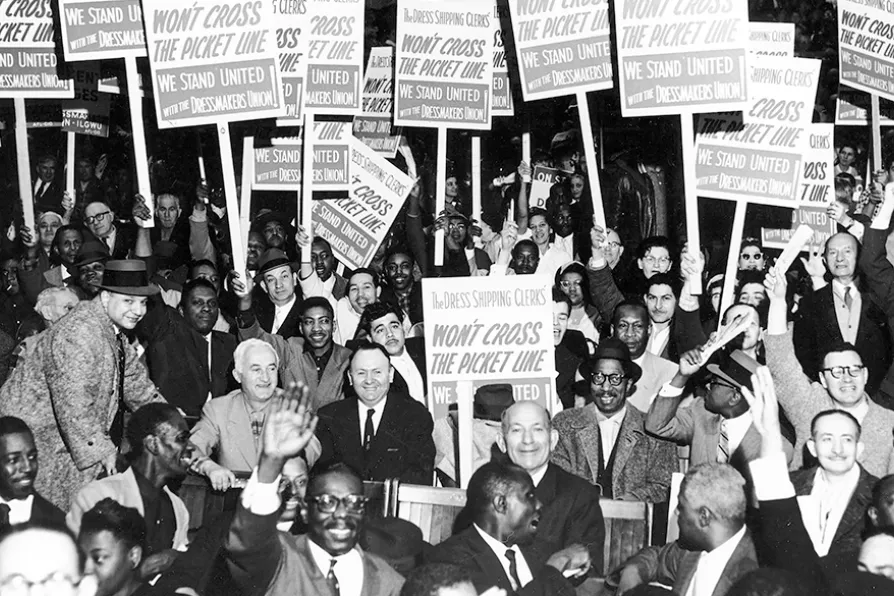Corbyn’s intervention exposes a corrupted system, writes CLAUDIA WEBBE
Racism as a capitalist strategy to divide workers
Anti-racism is indivisible from class struggle: sometimes we need to find ways to bring black and white workers together but also it can mean black self-organisation, writes ROGER McKENZIE

 STRENGTH IN UNITY: White and African-American workers together with placards: ‘The Dress Shipping Clerks' Won't Cross the Picket Line. We Stand United with the Dressmakers Union!,’ 1958
[Kheel Center/Public domain]
STRENGTH IN UNITY: White and African-American workers together with placards: ‘The Dress Shipping Clerks' Won't Cross the Picket Line. We Stand United with the Dressmakers Union!,’ 1958
[Kheel Center/Public domain]
RACISM must be understood as an instrument of exploitation in the workplace and beyond.
Far from being an abstract phenomenon of ideas and influences, racism is a dynamic which is deeply rooted in the structures of exploitation, power and privilege.
Consequently, the radical tradition of resistance to racism by black workers through the strategy of self-organisation is also far from being random or accidental.
Similar stories

ROZ FOYER explains the significance and tradition of today’s St Andrew’s Day March and Rally

The mass movement supporting Palestine represents potential political power that the left must now embrace as central to its strategy, writes HUGH LANNING, ahead of this Saturday’s Socialism or Barbarism day school in London

Sixty years after his murder, it is up to all of us to defy ruling-class attempts to sanitise or distort his revolutionary legacy by upholding his deep understanding of capitalism’s ties to racism and empire, writes ISAAC SANEY

Lenin’s theory of the weakest link shifted the centre of gravity of the proletarian revolution towards peoples’ struggles in the developing world, contrary to the expectation of Marx and Engels. The effect was to hinder the cause of socialism by decades. Time bring it back to its natural home, argues FAWZI IBRAHIM










